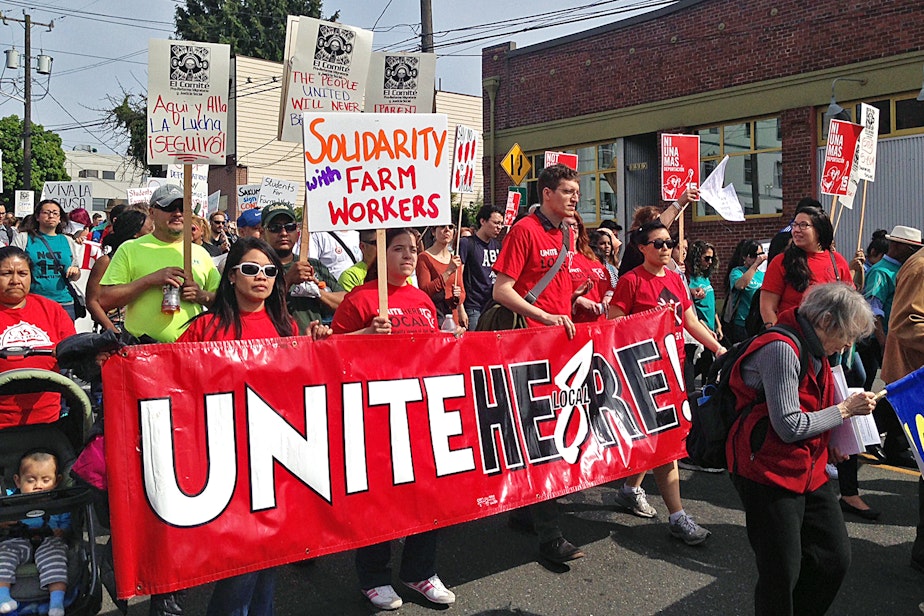Is Seattle The Epicenter Of Capitalism And Anti-Capitalist Protest?

Greater Seattle is known as home to some of the world’s most successful corporations including Microsoft and Amazon. But it's also home to some of the most vigorous anti-capitalist protests in the United States. What’s going on here?
In the most recent "anti-Capitalist" May Day march here in Seattle, 16 protesters were arrested, and nine police officers were injured. And in 2014 a socialist who spearheaded the movement to raise the city’s minimum wage to the highest in the country started her new job as a member of the Seattle City Council. (Kshama Sawant has also called for the collectivization of Amazon workers but so far no legislation on that has been introduced).
University of Washington history professor Margaret O'Mara says the Northwest has seen this kind of radical activism for more than a century, but in 2015 the protests reflect deeper anxieties over a city that is changing – including the more recent spike in rents and the cost of living.
That said, O'Mara believes it's too simplistic to see this as a “capitalist vs. anti-capitalist death match.” She points out that many of the people who work for big companies like Amazon, for example, also support the hike in the minimum wage.
And ultimately, O'Mara says, these tensions over the soul of the city have been going on since Henry Yessler built his sawmill in Seattle back in the 1850s and are likely to continue into the future: “Whose city is it? Whose territory is it? And what will it become?”

